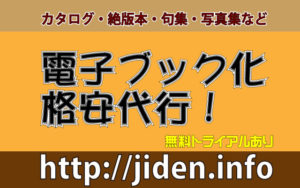
(絵:吉田たつちか)
The fairy tale "The Three Little Pigs" is beloved not only in Japan but also around the world. The story goes like this: Three little pigs leave their parents and set off on their own. The eldest builds a house of straw, the middle child builds one of sticks, and the youngest constructs one of bricks. However, the straw and stick houses, while quickly built, lack durability. As a result, they are destroyed by a wolf, and the pigs are eaten. The brick house built by the youngest, however, remains unshaken when the wolf tries to huff and puff, and when the wolf attempts to enter through the chimney, the youngest pig places a pot on the fireplace. The wolf falls into the boiling water and meets his end. Thus, the threat is removed, and the youngest pig lives peacefully.
This story teaches the importance of diligence and resourcefulness. However, it is questionable whether these values still resonate today. While the importance of diligence is undeniable, once people enter the workforce, the ability to work quickly becomes more important. Many working adults have experienced that as long as they can keep up appearances, there is no problem.
The development of communication and transportation networks has contributed to this change. In the past, there was a "waiting time" for everything, which could be used to prepare or study. Nowadays, with the internet enabling global transactions and 24-hour businesses becoming common, there is virtually no "waiting time" left. In this situation, it is difficult to make adequate preparations, making it seem as if everyone in Japan is living in a house of straw.
So, what should we do to build a brick house? The answer is to pause and think. Instead of being swept away by the speed of society, let's consider what preparations are truly important for us. Even if we cannot keep up with the pace, our lives will not be taken away. However, if we go with the flow without thinking and rely solely on quick fixes, we will eventually be devoured by the metaphorical wolf.
Japanese people are known globally for their diligent national character. To remind ourselves of this, we should strive to walk with our feet firmly on the ground. We should pause, work steadily at our own pace, and not let ourselves be controlled by others. This, perhaps, is the most important thing for protecting ourselves.
(Columnist Yoko Fujikawa) April 2023
童話『3匹の子豚』は、日本のみならず世界中で愛されています。あらすじはこうです。3匹の子豚が親元を旅立ち、長男は藁の家を次男は木の枝の家を、末っ子はレンガの家を建てます。しかし、藁の家と木の枝の家は手っ取り早く建つ反面、耐久性に問題が…。そのため狼に壊され、子豚たちは食べられてしまいました。末っ子が立てたレンガの家は狼が揺らしたとしてもびくともせず、煙突から侵入されても暖炉に鍋をかけます。そして、煮えたぎる湯の中に狼を落とし成敗したのです。こうして脅威は取り除かれ、末っ子は平和に暮らしました。
このお話は、勤勉さや機転の良さを大切にしようという教訓があるのはお分かりでしょう。しかし、現代にもこれが通じるかは甚だ疑問です。勤勉さを大切にしたくとも、コツコツと取り組む時間が取れるのは学生まで。社会人になると勤勉さ以上に、よりスピーディーに仕事をこなすことが重要視されています。表面上を取り繕うことができれば問題がないとされたことは、多くの社会人が経験しているはずです。
これは通信と交通網の発達が関係しています。一昔前まではあらゆるものに「待ち時間」があり、その時間に備えや勉強に当てることができました。でも、現代ではインターネットで世界中と取引ができ、24時間営業の店も珍しくありません。何事もアポ取りをして行うため、「待ち時間」が生じることはほぼなくなってしまいました。この状況で、しっかりとした備えをすることはできません。これでは日本人全員が藁の家に住んでいるも同然です。
では、レンガの家を建てるために何をすれば良いでしょうか。それは立ち止まって考えること。社会のスピードに流されず、自分にとって大切な備えとは何かを考えてみましょう。多少、スピードについていけなくとも、命を奪われることはありません。しかし、何も考えることなく流されて手っ取り早い方法ばかり身につけていれば、いずれ狼に食べられてしまうでしょう。
日本人は世界的に見て勤勉な国民性といわれています。これを思い出すためにも、地に足をつけて歩んでいきたいものです。立ち止まり、他人に振り回されることなく自分のペースでコツコツと。それこそが、身を守るために最も大切なことではないでしょうか。
(コラムニスト ふじかわ陽子)2023-04
三隻小豬與停下來的重要性 童話『三隻小豬』在日本以及世界各地都受到喜愛。故事大綱是這樣的。三隻小豬離開父母,大哥建了一棟稻草屋,二哥建了一棟樹枝屋,最小的則建了一棟磚屋。然而,稻草屋和樹枝屋雖然建得快,但耐用性卻有問題...。因此,被狼破壞了,小豬們被吃掉了。最小的磚屋即使被狼撞擊也毫無動搖,即使狼從煙囱潛入,也會把鍋放在壁爐上。然後,將狼扔進沸騰的水中,懲罰了它。就這樣,威脅被消除了,小豬平靜地生活下去。
這個故事,您應該明白其中的教訓是要重視勤奮和機智。但是,在現代,這是否適用仍然值得懷疑。即使想要重視勤奮,但能夠努力工作的時間只有學生。成為社會人士後,比勤奮更重要的是迅速完成工作。只要能夠維持表面的和諧,就沒有問題,這是很多社會人士都有過的經歷。
這與通信和交通網的發展有關。以前,所有事物都有「等待時間」,可以利用這段時間進行準備和學習。但是,在現代,可以通過互聯網與全世界進行交易,24小時營業的商店也不再罕見。由於所有事物都需要預約,「等待時間」幾乎已經消失。在這種情況下,很難做好充分的準備。這就像所有日本人都住在稻草屋一樣。
那麼,要建造磚屋應該做什麼呢?那就是停下來思考。不要被社會的速度所牽制,思考對自己來說重要的準備是什麼。即使在速度上稍微跟不上,也不會喪命。然而,如果什麼都不思考,只是隨波逐流地採用快速的方法,終究會被狼吃掉。
日本人被認為是具有勤奮的民族性。為了懷念這一點,我們也想要腳踏實地地前進。停下來,不被他人操控,按照自己的節奏努力。這或許才是保護自己最重要的事情。
(專欄作家 藤川陽子)2023-04




